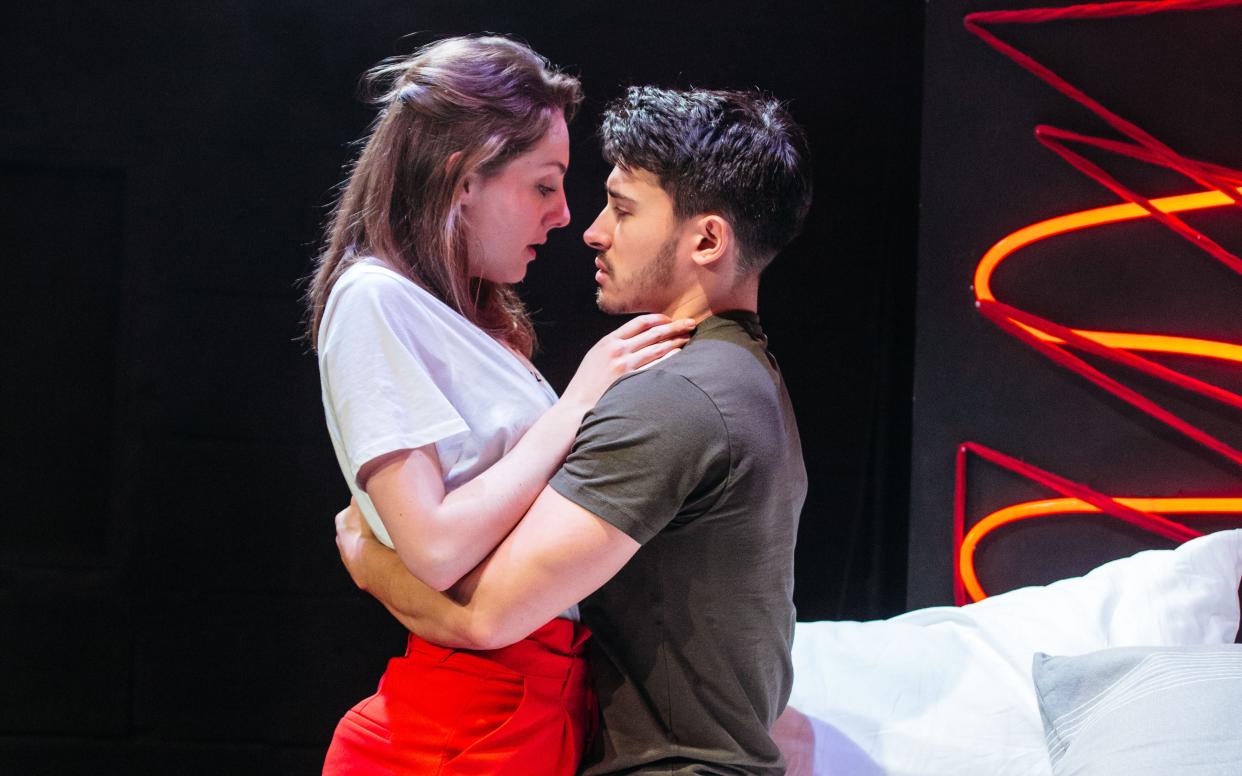Confessions of an intimacy director: how do you direct sex scenes in the age of #MeToo?

Imagine this: you’re an actress doing a play - one with a lot of intimacy. You have to stimulate a sex scene, maybe in a state of undress.
Maybe it chimes with an experience you've had in real life, where someone has gone too far - groping you on a night out, perhaps, or even a partner failing to stop when you asked them to. Perhaps worse.
So you’re rehearsing this scene and you know exactly what’s going to happen. You’re prepared.
Then opening night rolls around, and suddenly, there’s a hand up your skirt. This wasn’t planned; you forget your lines, and can’t think of a way to stop it.
This doesn’t always happen, but sometimes it does - like actress Maria Schneider's allegations that during the filming of an infamous rape scene in Last Tango in Paris, Bernardo Bertolucci and Marlon Brando used a stick of butter without her consent because he wanted the then-19-year-old's reaction "as a girl, not as an actress.”

In Love Me Now, the play I wrote about the toxicity of casual dating and the grey area that so often ensues when it comes to sex, there is one particular moment where things go too far, and one of the characters attempts to assault the other. Given the number of allegations that have come out since the #MeToo movement began, it's not hard to understand just how widespread issues like this can be.
We felt it would be deeply unfair to ask this of the actors without limitations in place to protect them, so we hired Enric Ortuno, an intimacy and fight director, to come in and help us make sure everyone felt safe.
He knows from experience what it's like to be caught off-guard by unexpected intimacy on stage, having been kissed by a fellow female student during a high school play. They had agreed to peck one another on the cheek, but during the performance, she ditched that plan, leaving him "shocked", and unable to concentrate for the rest of the piece.

“It provided me with the clear thought that an actor works better when they are focused, and that in the delicate moments of the play, they are not worrying whether their colleague is going to surprise them with an unexpected move," he explains of his unusual-sounding role.
Many of his peers, he says, have found themselves in situations where in the midst of an on-stage embrace, their co-actors have move their hand to a different place than rehearsed, or “would try for an open mouth kiss when not choreographed”.
Ortuno began teaching intimacy in addition to combat in a bid to "focus on being emotionally moved by what I was seeing.

“Both for violence and intimacy work, a relationship of trust must be created to allow the actors to delve deep and create a moving performance. A big part of any intimacy process is creating an emotional safe space where they actors feel completely secure and confident." And the key to that, "as basic as it may sound, is consent."
In light of #MeToo, there is new emphasis on just how important this is. "It has never been more vital that we implement these practices," says Ortuno, as "the theatre is a workplace. It's unacceptable that anyone feels unsafe when it's so easily preventable, and we need to take responsibility of protecting our performers."
Love Me Now is at the Tristan Bates theatre until Saturday 14 April


